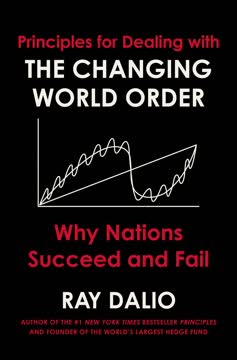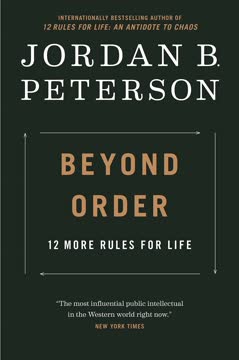つの重要なポイント
1. 絶え間ない練習と自己反省を通じて戦略の道を極める
「道を徹底的に理解するためには、勤勉に訓練し、精神的な啓発を達成しなければならない。」
継続的な改善: 戦略を極める道は、揺るぎない献身と絶え間ない練習を必要とする。これには以下が含まれる:
- 各種戦闘技術の毎日の訓練
- 定期的な瞑想と自己反省
- 戦略の原則を深く学ぶこと
全体的なアプローチ: 真の熟達は、物理的なスキルを超えて以下を含む:
- 戦士の心構えを育む
- 精神的な強さを培う
- すべてのものの相互関係を理解する
物理的な訓練、精神的な規律、そして精神的な成長を統合することで、戦略の道を真に体現し、強力な戦士となることができる。
2. 戦闘におけるタイミング、リズム、柔軟性の重要性を理解する
「すべてのものにはリズムがあり、それを認識することが重要である。」
タイミングがすべて: 戦闘における成功は、行動する適切な瞬間を認識し、それを利用する能力にかかっている。これには以下が含まれる:
- 練習を通じて鋭いタイミング感覚を養う
- 敵のリズムを読み取り、それを乱す
- 自分のリズムを調整して敵を不意打ちにする
行動の柔軟性: 熟練した戦士は以下を行う必要がある:
- 異なる技術間をシームレスに移行する
- 戦闘の動態に基づいて戦略を調整する
- どんな状況にも対応できるように精神的および物理的な流動性を維持する
タイミング、リズム、柔軟性を極めることで、戦士は戦闘の流れを制御し、勝利の機会を作り出すことができる。
3. 決然とした精神と揺るぎない勝利へのコミットメントを育む
「戦士の道は、一撃で敵を倒すことに完全にコミットすることである。」
揺るぎない決意: 戦士の精神の礎は、勝利を達成するための絶対的な決意である。これには以下が含まれる:
- 揺るぎないコミットメントの心構えを育む
- 戦闘における疑念とためらいを排除する
- 敵を倒すという究極の目標に集中する
完全なコミットメント: すべての行動において、戦士は以下を行う必要がある:
- 戦いを一撃で終わらせる意図で攻撃する
- 各攻撃に全エネルギーと集中力を注ぐ
- 勝利を追求する中で個人的な安全を無視する
この決然とした精神を体現することで、戦士はあらゆる障害を克服する強力な力となる。
4. 敵の行動を予測するための知覚と直感を育む
「見えないものを見る。」
高められた意識: 戦闘で成功するためには、鋭い知覚を発達させることが重要である。これには以下が含まれる:
- 敵に関する情報を収集するためにすべての感覚を鋭敏にする
- 身体言語や動きの微妙な手がかりを読み取る
- 人間の行動に対する直感的な理解を培う
予測的思考: 熟練した戦士は以下を行う必要がある:
- 敵の行動を事前に予測する
- 戦闘状況におけるパターンや傾向を認識する
- 直感的な洞察に基づいて瞬時に決定を下す
知覚と直感を磨くことで、戦士は敵の一歩先を行き、戦闘の主導権を握ることができる。
5. 技術的スキルと精神的発展のバランスを取る
「戦略の道は自然の道である。」
全体的な熟達: 戦略の道における真の熟達は、以下のバランスを必要とする:
- 戦闘技術における技術的な熟達
- 精神的な成長と自己理解
- 精神的な規律と感情のコントロール
技術を超えて: 物理的なスキルを極めることは重要であるが、戦士は以下も行う必要がある:
- 自然界との深い結びつきを育む
- 内なる静けさと心の明晰さを培う
- 戦略の普遍的な原則と一致する
技術的スキルと精神的発展を統合することで、戦士はより深い力と知恵の源にアクセスすることができる。
6. 心理的操作を通じて敵を制御する
「自分を知ることは他人を知ることである。」
精神的戦争: 熟練した戦士は、勝利がしばしば心の中で始まることを理解している。これには以下が含まれる:
- 敵を威圧するための無敵のオーラを投影する
- 欺瞞と誤導を用いて混乱を引き起こす
- 敵の恐怖と弱点を利用する
心理的戦術: 効果的な戦略には以下が含まれる:
- 敵のリズムとタイミングを乱す
- 偽の隙を作り出して敵をミスに誘う
- 読み取れない態度を維持して敵を惑わせる
心理的操作の技術を極めることで、戦士は最初の一撃を打つ前に戦場を制御することができる。
7. 戦闘技術におけるシンプルさと直接性を受け入れる
「剣術の真の道は、戦いにおいて敵を打ち負かす技術であり、それ以外の何物でもない。」
行動の効率: 最も効果的な戦闘技術はしばしば最もシンプルである。戦士は以下に焦点を当てるべきである:
- 基本的な技術を極めること
- 不必要な動きや装飾を排除すること
- 戦闘において直接的かつ決定的な行動を追求すること
目的の明確さ: すべての交戦において、以下を維持する:
- 敵を打ち負かすことに対する一心不乱の集中
- 戦闘戦略に対する率直なアプローチ
- 本質的な目標に対する揺るぎないコミットメント
シンプルさと直接性を受け入れることで、戦士は複雑さを切り抜け、最小限の無駄な努力で勝利を収めることができる。
8. 他の流派から学びつつ、自分の道を維持する
「すべての職業の道を知る。」
広範な理解: 真に熟練した戦士は、さまざまな源から知識を求める:
- 異なる武道のスタイルや技術を学ぶ
- 他の分野や職業から学ぶ
- 自然を観察し、周囲の世界から洞察を得る
批判的な識別: 他者から学ぶ際には、以下が重要である:
- 異なるアプローチの有効性を評価する
- 有用な概念を自分のスタイルに適応させる
- 自分の選んだ道に強固な基盤を維持する
多様な源からの知識を統合しつつ、核心原則に忠実であることで、独自で強力な戦略アプローチを開発することができる。
9. ためらいを克服し、決定的な行動を取る
「攻撃を決意したら、冷静に素早く突進し、敵を先制する。」
決定的な心構え: 戦闘におけるためらいは致命的である。戦士は以下を培う必要がある:
- プレッシャー下で迅速に決定を下す能力
- 自分のスキルと判断に対する自信
- 各行動に完全にコミットする意欲
迅速な実行: 攻撃の瞬間が来たら:
- ためらいや二の足を踏まずに行動する
- すべてのエネルギーを一つの強力な攻撃に集中する
- 行動中は冷静さと集中を維持する
ためらいを克服し、決定的に行動することで、戦士は戦闘状況を掌握し、勝利の機会を作り出すことができる。
10. 統一された心と体であらゆる状況や武器に適応する
「特定の武器やその他のものに特別な愛着を持つべきではない。」
戦闘における多才さ: 戦略の真の達人は、あらゆる状況に適応できる。これには以下が含まれる:
- 各種武器や戦闘スタイルに対する熟練
- 即興での対応や非伝統的な道具の使用
- 変化する状況に迅速に適応する柔軟な心構え
心身の統一: 真の適応力を達成するために、戦士は以下を行う必要がある:
- 思考と行動の間にシームレスなつながりを築く
- 体を訓練して即座に精神的な命令に反応させる
- 意識的な思考が不要になる状態のフローを培う
心と体が統一され、適応力を持つことで、戦士はどんな挑戦にも自信とスキルを持って立ち向かうことができる。
最終更新日:
FAQ
What's "Musashi's Book of Five Rings" about?
- Overview of the book: "Musashi's Book of Five Rings" is a definitive interpretation of Miyamoto Musashi's classic work on strategy, focusing on the art of swordsmanship and its application to broader life strategies.
- Author's perspective: Stephen F. Kaufman, a martial arts expert, provides insights into Musashi's teachings, emphasizing the philosophical and strategic elements of combat.
- Structure of the book: The book is divided into five sections: Earth, Water, Fire, Wind, and No-thing-ness, each representing different aspects of strategy and life philosophy.
- Historical context: Musashi was a legendary Japanese swordsman, and his teachings are rooted in the realities of life and death combat during his time.
Why should I read "Musashi's Book of Five Rings"?
- Strategic insights: The book offers profound insights into strategy that can be applied beyond martial arts, including business and personal development.
- Philosophical depth: It explores deep philosophical concepts about life, death, and the nature of existence, providing a unique perspective on personal growth.
- Practical applications: Kaufman's interpretation makes Musashi's teachings accessible and applicable to modern challenges, emphasizing mental and physical discipline.
- Cultural significance: Understanding Musashi's work provides a window into Japanese culture and the historical context of samurai philosophy.
What are the key takeaways of "Musashi's Book of Five Rings"?
- Strategy as a way of life: Strategy is not just for combat but a comprehensive approach to life, requiring constant practice and self-discipline.
- Importance of adaptability: Flexibility and the ability to change tactics are crucial for success in any endeavor.
- Inner and outer harmony: True mastery involves aligning one's inner spirit with external actions, achieving a state of no-thing-ness.
- Continuous learning: The pursuit of perfection is ongoing, and one must remain open to learning from all experiences and disciplines.
How does Stephen F. Kaufman interpret Musashi's teachings?
- Focus on spirit: Kaufman emphasizes the importance of spirit and mental resolve over mere physical technique.
- Modern relevance: He relates Musashi's principles to contemporary life, making them relevant for today's readers.
- Clarification of concepts: Kaufman aims to clear up misconceptions and provide a deeper understanding of Musashi's strategic philosophy.
- Universal application: The interpretation extends Musashi's teachings beyond martial arts to various aspects of life and personal development.
What is the significance of the five sections: Earth, Water, Fire, Wind, and No-thing-ness?
- Earth: Lays the groundwork for understanding strategy, focusing on the fundamentals and the physical aspects of combat.
- Water: Represents adaptability and fluidity, teaching the importance of adjusting to circumstances and maintaining a flexible mindset.
- Fire: Focuses on the intensity and directness of combat, emphasizing decisive action and the spirit of engagement.
- Wind: Examines the styles and strategies of other schools, encouraging an understanding of different perspectives and techniques.
- No-thing-ness: Explores the philosophical concept of emptiness, highlighting the importance of transcending ego and achieving a state of pure being.
What are the best quotes from "Musashi's Book of Five Rings" and what do they mean?
- "The Way of the warrior is based on no-thing-ness." This quote emphasizes the concept of emptiness, suggesting that true mastery involves transcending ego and preconceived notions.
- "To know ten thousand things, know one well." It highlights the importance of mastering a single discipline to gain broader understanding and insight.
- "The ultimate aim of the martial arts is not having to use them." This reflects the idea that true mastery involves avoiding conflict through understanding and strategy.
- "There is no one way to salvation." It suggests that multiple paths can lead to enlightenment, and each person must find their own way.
How does "Musashi's Book of Five Rings" relate to modern business strategy?
- Mental and physical preparation: The book emphasizes the importance of being mentally and physically prepared, which is crucial in business for making informed decisions.
- Adaptability and flexibility: Musashi's teachings on adaptability are directly applicable to navigating the ever-changing business landscape.
- Decisive action: The emphasis on taking decisive action in combat translates to making bold, informed decisions in business.
- Understanding competition: The book encourages understanding competitors' strategies to gain an advantage, a key aspect of business strategy.
What is the role of meditation and self-discipline in Musashi's strategy?
- Meditation for clarity: Meditation is used to clear the mind, allowing for better focus and decision-making in both combat and life.
- Self-discipline as a foundation: Continuous practice and self-discipline are essential for mastering any art, including strategy.
- Inner peace and resolve: Meditation helps cultivate inner peace and resolve, crucial for maintaining composure under pressure.
- Alignment of mind and body: Self-discipline ensures that the mind and body are aligned, enabling effective action and strategy execution.
How does Kaufman address misconceptions about Musashi's work?
- Clarification of intent: Kaufman clarifies that Musashi's teachings are not just about swordsmanship but about a comprehensive approach to life.
- Distinction from business strategy: He distinguishes Musashi's work from modern business strategy, emphasizing the life-and-death context of the original teachings.
- Focus on spirit over technique: Kaufman stresses the importance of spirit and mental resolve, countering the misconception that technique alone is sufficient.
- Universal application: He highlights the universal applicability of Musashi's principles, beyond the martial arts context.
What is the "Way of strategy" according to Musashi?
- Deliberate methodology: The Way of strategy is a deliberate and methodical approach to life, requiring constant practice and refinement.
- Integration of mind and body: It involves the integration of mental and physical aspects, ensuring that actions are aligned with intentions.
- Focus on victory: The ultimate goal is to achieve victory, whether in combat or in life's challenges, through strategic thinking and action.
- Continuous improvement: The Way of strategy is a lifelong pursuit, emphasizing the importance of continuous learning and adaptation.
How does "Musashi's Book of Five Rings" address the concept of "no-thing-ness"?
- Philosophical foundation: No-thing-ness is a central philosophical concept, representing the idea of emptiness and the absence of ego.
- Transcending duality: It involves transcending dualistic thinking, achieving a state of pure being and awareness.
- Alignment with nature: No-thing-ness aligns with the natural order, allowing for spontaneous and effective action.
- Ultimate mastery: Understanding no-thing-ness is seen as the ultimate mastery, where one acts without attachment or preconceived notions.
What is the significance of the two-sword technique in Musashi's strategy?
- Versatility in combat: The two-sword technique provides versatility, allowing a warrior to adapt to different combat situations.
- Symbol of balance: It symbolizes the balance between offense and defense, as well as the integration of mind and body.
- Strategic advantage: Using two swords offers a strategic advantage, enabling simultaneous attack and defense.
- Philosophical depth: The technique reflects deeper philosophical principles, emphasizing the importance of adaptability and fluidity in strategy.
レビュー
本書『五輪書』は、実践的な知恵とさまざまな生活面への応用性が高く評価されている。読者は翻訳の明瞭さや、戦略、自己改善、武道哲学に関する洞察を称賛している。一部の読者は繰り返しが多いと感じたり、共感しにくいと感じたりするが、全体としては、武士の精神、個人の成長、日本文化に興味がある人々にとって価値のある一冊と見なされている。本書の簡潔さと時代を超えた原則が強みとして頻繁に挙げられている。
Similar Books














